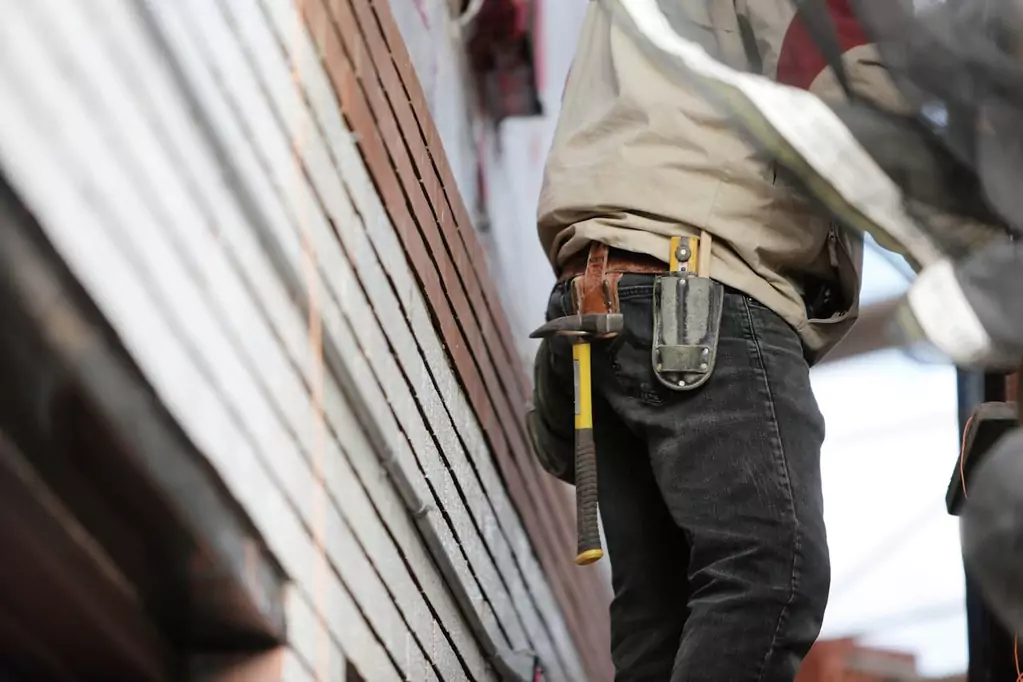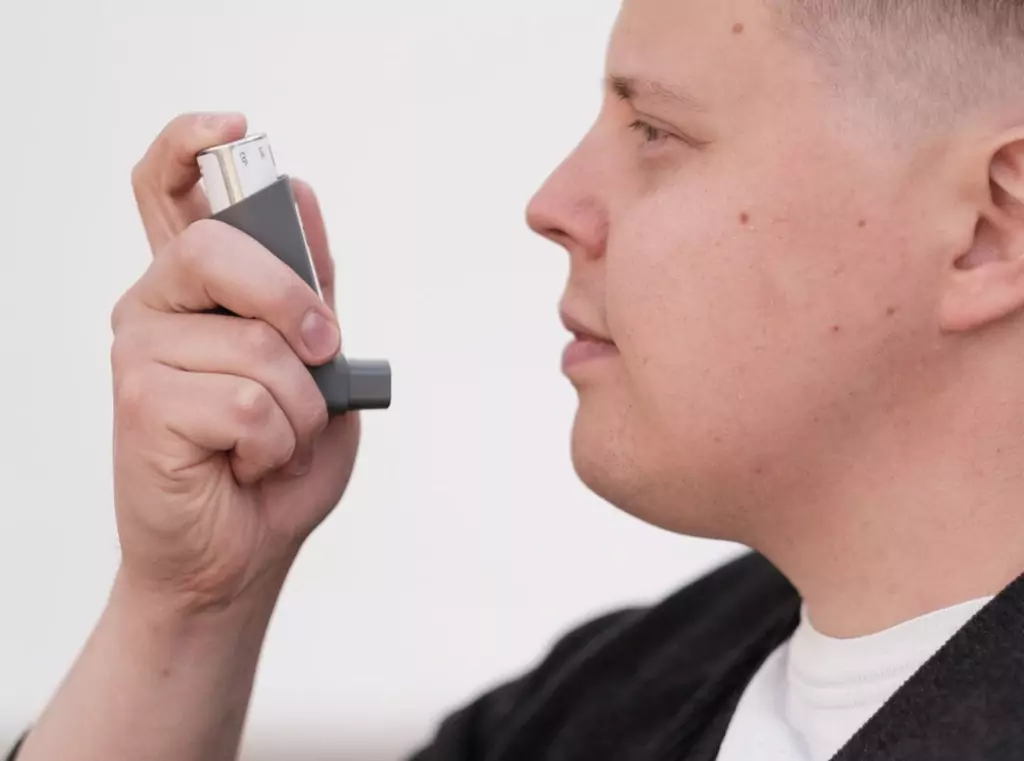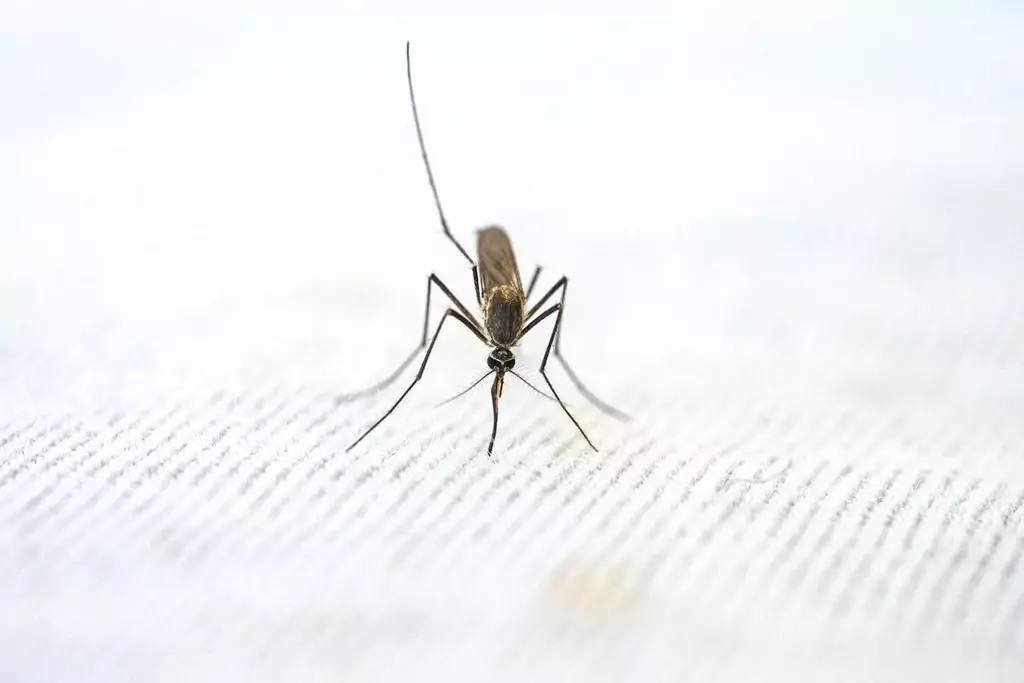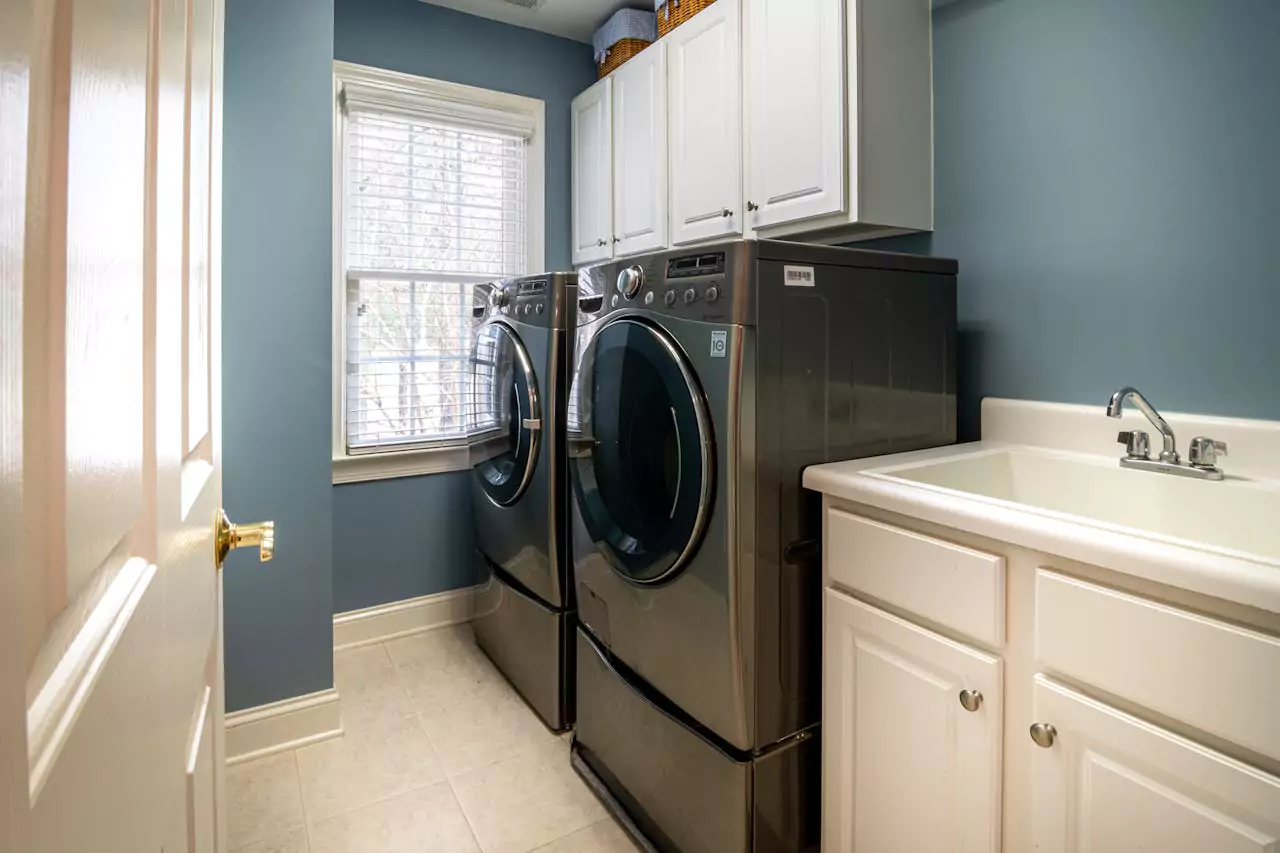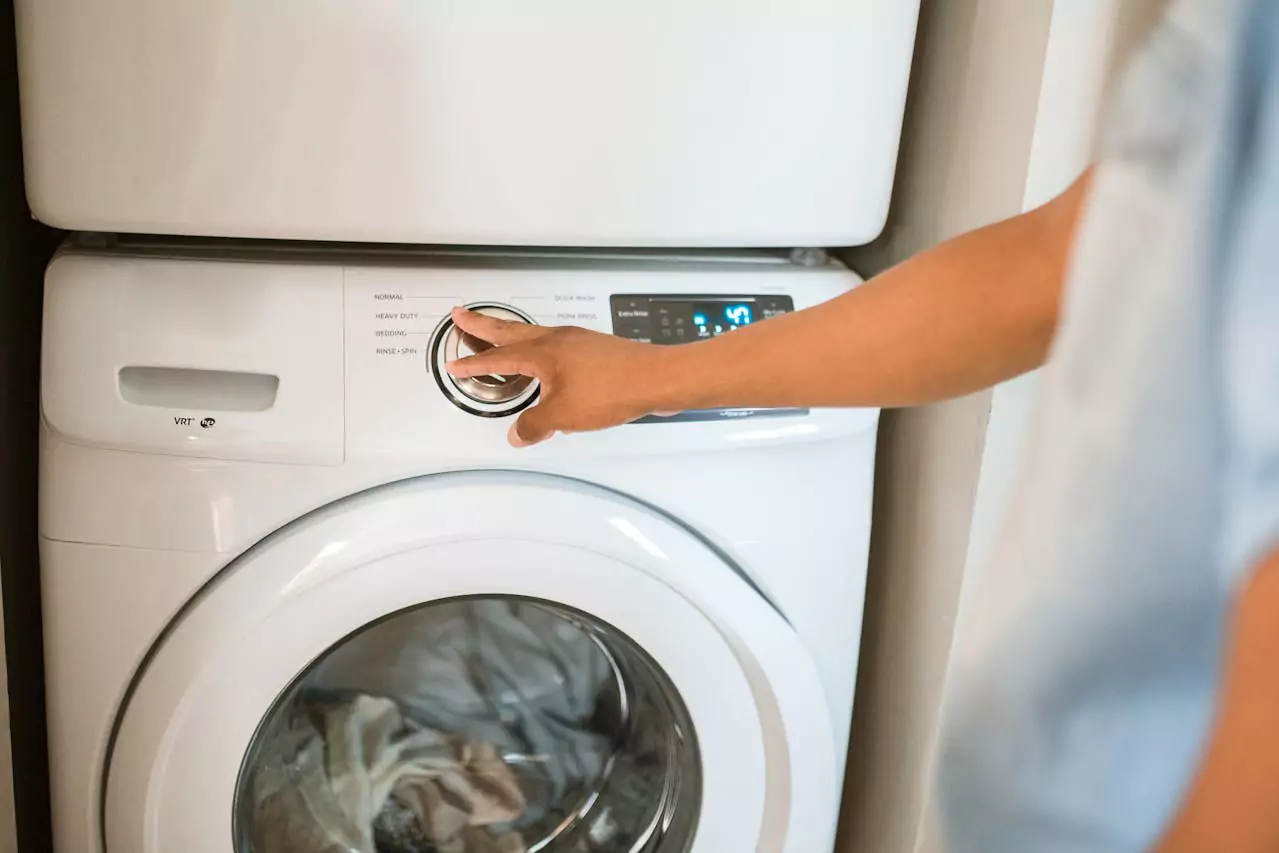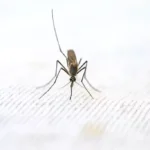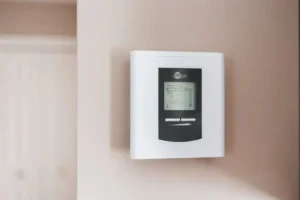Now Reading: Will an Air Conditioner Filter Out Smoke in Your Home?
- 01
Will an Air Conditioner Filter Out Smoke in Your Home?
- Home
- Home Appliances
- Will an Air Conditioner Filter Out Smoke in Your Home?
Will an Air Conditioner Filter Out Smoke in Your Home?
![]() Anne MaddisonClimate Control, Home AppliancesAugust 12, 2025118 Views
Anne MaddisonClimate Control, Home AppliancesAugust 12, 2025118 Views

There are days when the air outside feels heavy and smells like smoke. It might be from nearby wildfires, a neighbor burning leaves, or even cigarette smoke drifting in from somewhere. When that smell makes its way indoors, it can be frustrating and worrying. Nobody wants to breathe in smoky air while trying to relax at home. That’s when you might start wondering if your air conditioner can help clear the air from smoke.
The truth is, it can, but not in every situation. Smoke particles are smaller and more stubborn than things like dust or pet hair, and that means your AC’s ability to handle them depends on the type of filter it uses and how your system is set up.
In this guide, we’ll go over how air conditioners deal with smoke, which filters are most effective, and what you can do to make your system work harder for cleaner air. By the time you finish reading, you’ll know exactly what your AC can and cannot do when it comes to filtering smoke.
How Air Conditioners Filter Smoke
Before we talk about specific filters, it helps to understand what your air conditioner is actually doing when smoke gets inside. Your AC is constantly cycling air through its system, and that air has to pass through a filter before it comes back into your living space. The way that filter is designed — and what it can catch — makes all the difference when it comes to dealing with smoke.
The Role of an AC Filter
Every air conditioner has some type of filter. Its main job is to clean the air that passes through your system before it circulates back into your home. Most filters are designed to trap everyday particles like dust, pet hair, and pollen. They work a bit like a net, catching larger particles as air flows through.
The effectiveness of a filter depends on its material, thickness, and rating. Standard filters do a fine job with common allergens and debris, but smoke particles are a completely different challenge. Smoke is made up of extremely tiny particles, often less than one micron in size. For comparison, a grain of dust is typically tens of times larger than a smoke particle. This size difference means that many standard filters simply are not fine enough to capture smoke effectively.
Why Smoke Is Harder to Filter
The biggest challenge with smoke is that it is not just particles floating in the air. It also contains microscopic gases and odor molecules. Even if a filter can trap some of the solid particles, the smell and harmful gases can pass right through.
Another tricky part is that smoke particles are light and can stay suspended in the air for hours. This gives them plenty of time to travel through your home and spread to different rooms. And because they are so small, they can slip through tiny gaps in your AC system or even pass through filters that are meant for dust and pollen.
This is why filtering smoke requires more than just a basic air conditioner filter. It often calls for specialized filters designed to capture both fine particles and the gases that create the smell.
If you’re wondering about other ways your cooling system might affect your health, check out our guide on can air conditioner make you sick?
Types of AC Filters and Their Effectiveness Against Smoke
Not all AC filters are created equal, and their ability to handle smoke varies widely. The type of filter in your system makes a big difference in how well it can capture tiny smoke particles and odors. Here’s how the most common options compare.
Standard Fiberglass Filters
These are the most basic type of AC filter and are often found in older systems or used because they are inexpensive. They are made from thin layers of fiberglass and are designed to trap larger particles like lint, dust, and hair. While they help protect your AC from debris, they are not effective at capturing smoke. The gaps in the material are simply too large for the tiny smoke particles to get caught.
Pleated Filters
Pleated filters are made from a denser material and have folds that increase the surface area for trapping particles. They can capture smaller particles than fiberglass filters, making them better for improving general indoor air quality. However, when it comes to smoke, they still have limits. While they may catch some smoke particles, they do not remove smoke odors or gases.
HEPA Filters
HEPA stands for High Efficiency Particulate Air. These filters are specifically designed to capture extremely small particles, including those found in smoke. According to the United States Environmental Agency, a true HEPA filter can remove at least 99.97 percent of particles that are 0.3 microns in size. This makes them very effective against smoke, but not all AC systems are built to handle HEPA filters because they can restrict airflow if the system is not designed for them.
Activated Carbon Filters
Activated carbon filters are the top choice for removing smoke odors and gases. They work by absorbing these contaminants into the porous carbon material. When paired with a good particle filter, they provide strong protection against both the visible particles in smoke and the smells that come with it. These filters need to be replaced regularly because the carbon can become saturated and lose its effectiveness over time.
Improving Your Home AC’s Ability to Filter Smoke
If you want your air conditioner to do a better job of handling smoke, a few strategic changes can go a long way. From upgrading filters to sealing leaks, these steps can help keep your indoor air cleaner during smoky conditions.
Upgrading Your Filter
One of the simplest and most effective ways to improve how your AC handles smoke is to use a filter with a higher MERV rating. MERV stands for Minimum Efficiency Reporting Value and it measures how well a filter can trap small particles. Filters with a MERV rating of 13 or higher are much better at capturing smoke particles compared to standard options. Before upgrading, check your system’s specifications to make sure it can handle a higher-rated filter without restricting airflow.
Running Your AC in Recirculation Mode
When smoke is present outside, you want to avoid pulling in fresh air from outdoors. Running your AC in recirculation mode keeps the system using the air already inside your home, which prevents more smoky air from entering. Many central AC systems do this by default, but some have settings that allow you to switch between bringing in outside air and recirculating indoor air.
Sealing Air Leaks
Even with a good filter, smoke can still enter if your home has leaks. Check for gaps around windows, doors, and vents where air could slip through. Weatherstripping, caulk, and vent covers can make a big difference. In a central AC system, sealing leaks in the ductwork can also help prevent smoky air from being pulled into the system from unconditioned areas like attics or basements.
Pros of Using an Air Conditioner to Filter Smoke | |
|---|---|
| Continuous air circulation | An air conditioner keeps air moving through your home, which means the filter has more opportunities to trap smoke particles. This steady circulation can help prevent smoky air from settling in one area. |
| Helps reduce indoor smoke particles | While not perfect, a good AC filter can capture a significant amount of smoke particles, especially if you use a high MERV rating or a HEPA filter in a compatible system. This can make the air feel cleaner and safer to breathe. |
Cons of Using an Air Conditioner to Filter Smoke | |
|---|---|
| Limited odor removal unless using carbon filters | Most standard filters do not remove the smell of smoke or the gases it contains. For that, you need an activated carbon filter or a separate air purifier designed for odor control. |
| May strain AC system if filter is too restrictive | Upgrading to a higher-rated filter can improve smoke filtration, but it can also reduce airflow if your system is not designed for it. This can cause the AC to work harder, potentially leading to higher energy use or wear on the system. |
Other Ways to Improve Indoor Air Quality During Smoke Events
While your AC can help, it’s not the only tool for keeping your indoor air cleaner during smoky conditions. Combining it with other simple strategies can make a big difference in how much smoke you breathe indoors.
Using Air Purifiers with HEPA and Carbon Filters
A portable air purifier can be a powerful partner to your AC when smoke is in the air. Look for one that combines a HEPA filter for capturing fine particles with an activated carbon filter for removing odors and gases. Place the purifier in the rooms where you spend the most time, such as the bedroom or living room. Running it continuously during smoky periods can make a noticeable difference in air quality.
Keeping Windows and Doors Closed
It may seem obvious, but keeping windows and doors shut is one of the simplest ways to keep smoky air from getting inside. Even small openings can let in more particles than you realize. If you need fresh air, limit it to short periods once outdoor conditions improve.
Avoiding Indoor Activities That Add Smoke
When the air outside is already smoky, the last thing you want is to add more pollutants inside. Try to avoid lighting candles, burning incense, using a fireplace, or cooking on a gas stove without ventilation. These activities release particles and gases that can make indoor air quality worse. If you must cook, use your range hood or open a vent to help remove the smoke.
Common Mistakes When Trying to Filter Smoke with AC
Even with the best intentions, it’s easy to make mistakes that reduce how well your AC can protect you from smoke. Knowing what to avoid can help you keep your indoor air cleaner and your system working efficiently.
Using the wrong filter type
Not all AC filters are built to handle smoke. Standard fiberglass filters will let most smoke particles pass right through. Choosing the right filter, such as a higher MERV rating or a HEPA filter (if your system can handle it), makes a big difference in how well your AC can clean the air.
Not replacing filters frequently during smoke events
When smoke levels are high, filters can become clogged much faster than usual. A dirty filter reduces airflow and makes it harder for your AC to trap particles. During heavy smoke periods, you may need to replace your filter more often, even every few weeks.
Using “fresh air” mode during wildfires or heavy pollution
Some systems have a setting that brings in outdoor air to improve ventilation. While this is useful in normal conditions, it is the last thing you want during smoky weather. Keep your system set to recirculate indoor air so you are not constantly pulling in more smoke from outside.
If you have houseplants indoors, you might be curious whether your AC could harm them, and we cover that in our guide on whether your air conditioner can kill plants.
FAQs About Air Conditioners and Smoke
Can a portable AC filter smoke?
Most portable air conditioners are not designed to filter smoke effectively. They usually have basic filters that catch dust and larger particles, but these do not trap fine smoke particles or odors. Some models allow you to add better filters, but for serious smoke concerns, a separate air purifier with a HEPA and carbon filter is more effective.
Will running AC without a filter help or harm?
Running your AC without a filter is never a good idea. While it might allow for more airflow, it will also let dust, smoke particles, and debris pass directly into your system. This can damage the coils, reduce efficiency, and spread pollutants throughout your home. Always use a filter, especially during smoky conditions.
How often should I change my AC filter during smoky conditions?
Under normal circumstances, filters may last one to three months. During heavy smoke events, they can become clogged much faster. It is a good idea to check your filter every week and replace it as soon as it looks dirty or gray. A clean filter will help your AC run efficiently and keep capturing smoke particles.
Final Thoughts
Smoke can make indoor air uncomfortable and even unhealthy, but your air conditioner can play a role in keeping it cleaner. The right filter, such as a high-MERV pleated option, HEPA filter, or one with activated carbon, can help trap fine particles and reduce odors. Pairing your AC with other steps like using a quality air purifier, sealing leaks, and avoiding activities that add smoke indoors will give you the best results.
If you live in an area prone to wildfires or pollution, preparing now is worth the effort. Upgrade your filter, check your AC settings, and have a plan for keeping indoor air fresh. A little preparation today can make a big difference the next time the air outside turns smoky.
Related Posts
Previous Post
Next Post
Previous Post
Home AppliancesAugust 11, 2025
Will Your Home Washer and Dryer Kill Ticks?
Next Post
Laundry & CleaningAugust 13, 2025
Best Places to Donate a Washer and Dryer
Home InternetJuly 30, 2025
Signs Your Home Router Might Be Hacked
Climate ControlAugust 24, 2025
Are Home Air Conditioner Tune Ups Necessary
Climate ControlAugust 23, 2025
Can Air Conditioning at Home Trigger Asthma?
- 04
Home InternetJuly 30, 2025
Signs Your Home Router Might Be Hacked


